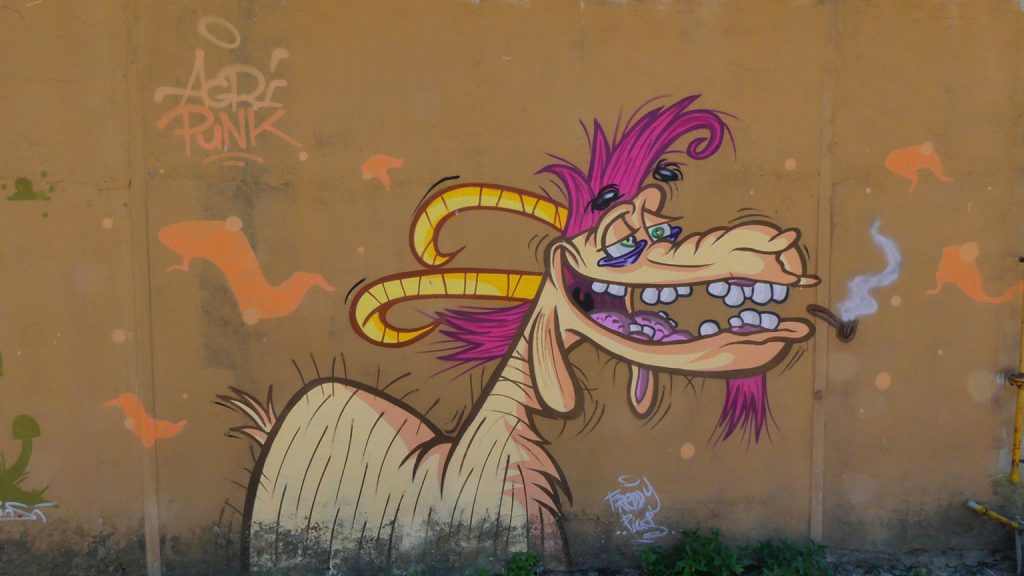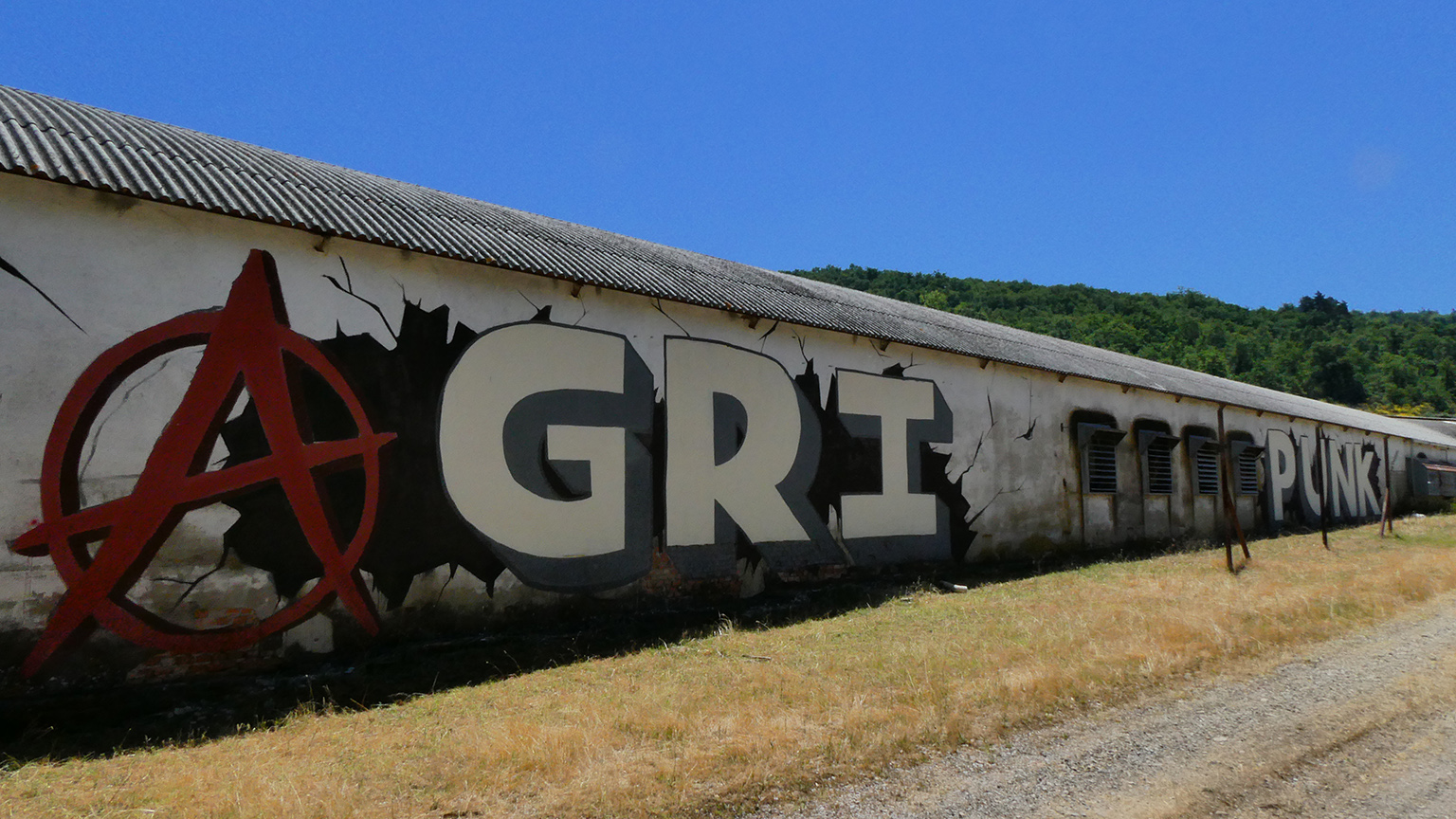Travelling in Ambra (Toscana), we met the vegan activists of the Agripunk collective. After helping to close an intensive turkey farm, Désirée and David quickly converted the old farm into an animal shelter! A unique, atypical and dynamic place welcoming volunteers from all over the world. |Interview by Polka B. (Trad: Alkistis) A.
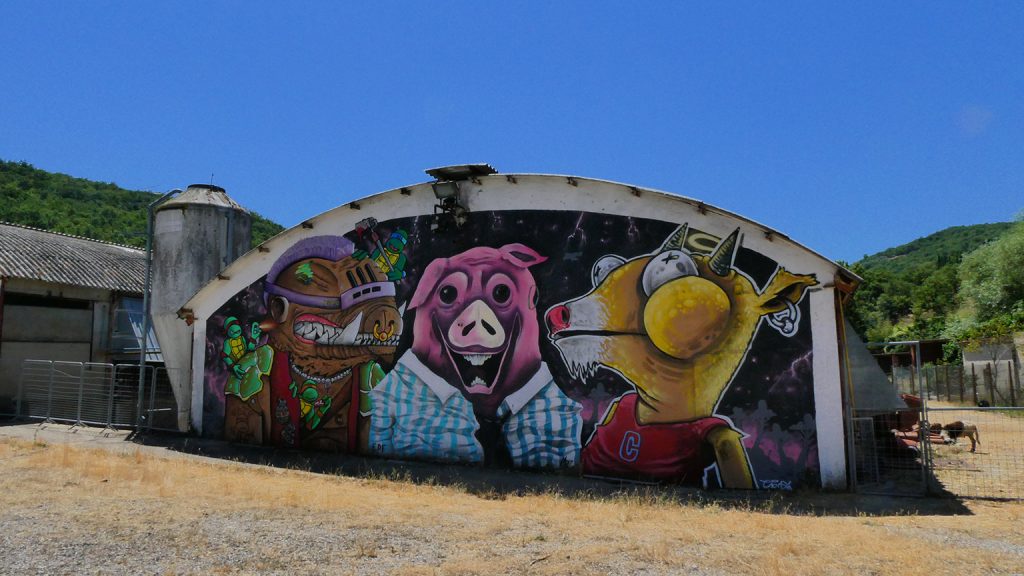
Can you tell us the beginning-the story of “Agripunk” and why are you interested precisely to this intensive turkeys’ farm?
Désirée : This was an intensive turkeys’ farm for Amadori and McDonalds. When I met David who lived here, he told me about this farm and all this bad treatment inflicted to animals. I remember in April 2012 we came inside with the excuse to make a garden, they opened the lock… and I saw all these turkeys all these white turkeys some without fingers, some without feather, some hurt and when we came here to make some photos and videos the turkeys came to us and started making noises, it was like they were asking: “what’s happening”? I have seen how they were intelligent, curious, sweet… And they screamed because of the warmth and the oppression to stay here. So I decided to help to closing this farm because I think it’s the minimum that we can try to do. We gained some information from people nearby, we showed videos and photos to the vet who came here for control. Finally, with all of this evidences, the farmer went away. After, we occupied this part of the farm for one year and we asked the landlord to give us this place with a rent to pay.
What was your strategy to close the farm?
D: We made too many things. We envisioned too many strategies because it’s not only one strategy possible. Sometimes when we talk with others activists, some say the best thing to do is to show the images of the torture and exploitation, others say the best thing is to explain that there is too much food other than meat, many say that the better strategy is to make sabotage. For me, it’s all a good way to make a farm close, information, investigation, talking to local people, all these things are good. We made a blog and a facebook page to share the most of possible all these pictures. We made a stand in many local events with a big screen. People stopped at our stand and asked “what is this? is this the farm in Ambra? That’s not possible!”. When they have all the evidences of bad treatments, the veterinary can just come here and validate the definitive closure. The farmer who managed the property left the place, he was tired because of the problems.
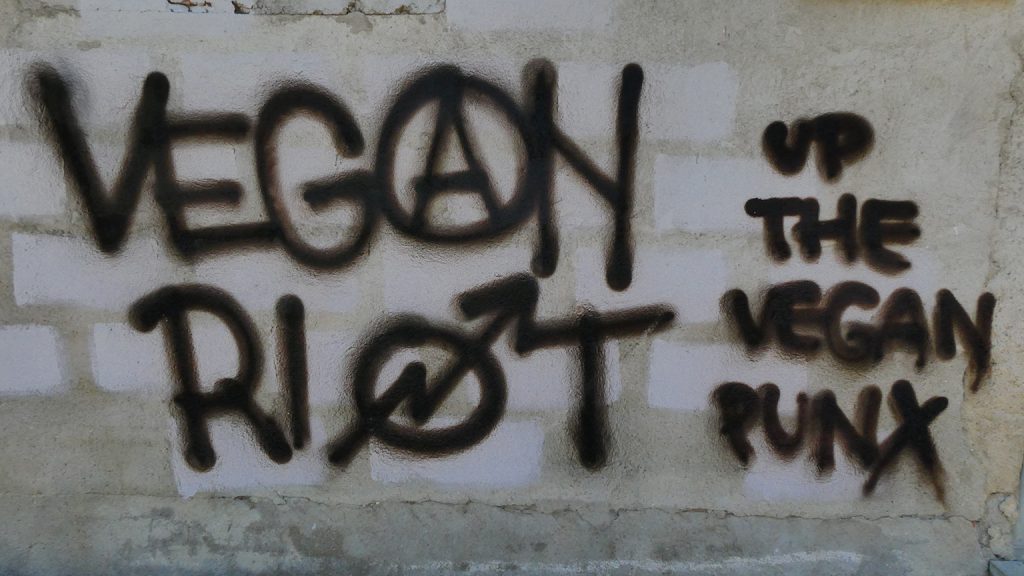
Did you never try to speak directly of this with the farmer?
D: I saw the farmer some days before his departure. He didn’t know I am vegan. We talked all the morning and I asked him: “why do you do this job ?”. And he said: “I don’t know it’s the activity of my wife and I work for her but I don’t eat turkey or chicken because I know under which conditions they grew up”. We talked about everything, about the hunt, the farm, the animal exploitation and experimentation and finally they changed of work. We know for sure they changed of work!
In 2013, you was living in the farm. What was your aim at this moment?
D: When a farm closes, another farmer can come and take it to start to exploit animals again. but we thought that we can take the farm and make something because there is too many place and lab for activities, art. I studied art, sculpture and conservation so we decided to create a big space for music and art. We can use the stable for rescuing animals. We clearly felt that we had the possibility to try to create something more similar to the “real” freedom!
First, this place was occupied. Why did you decide to pay a rent?
D: The animals are also subject to a bureaucracy. You must have a code for your stable, the animals must have documents. It’s not possible to realize our projects in a no-legal place because you need documents for the properties. If we could occupy without paying it would be better, but it’s not possible in our context. In this way, the animals are safe. Because if I take car of this place I can defend it good. The animals can not do it.
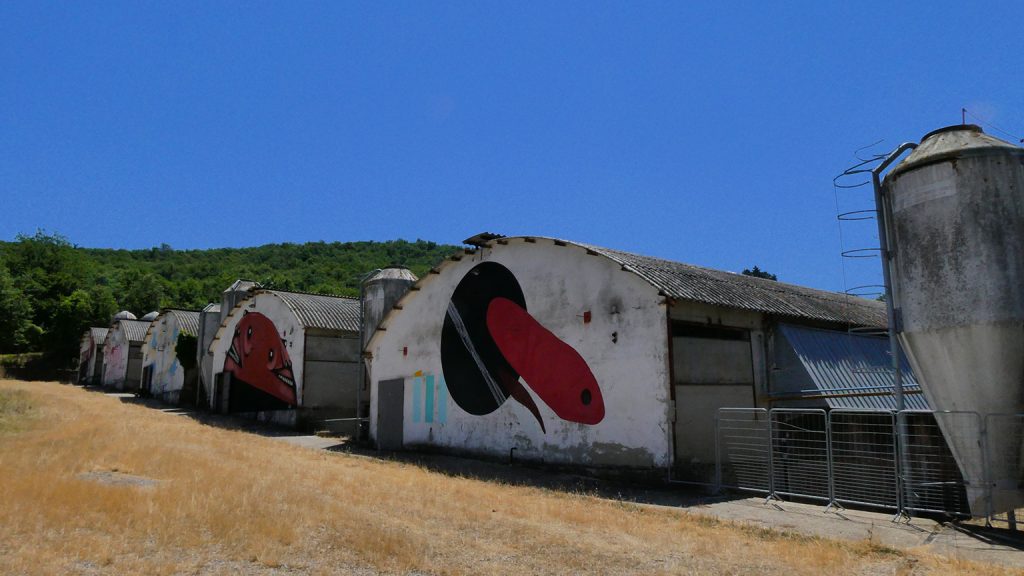
You are hosting there a lot of animals. How did you find them?
D: The sheeps and the goats come from different situations. Some are rescued from other people but they didn’t have place for them. Some others were old and they weren’t exploitable anymore, or they were babies found and got rescued. We make collaborations with a lot of associations like “Resistanza Animale”. We also have some activists in Sicily. They went to speak with the authority and we had luck because the mayor of Messina is a pacifist and ecologist, against a lot of situations of exploitation. He understood the situation, he was friendly. With his help, we succeed to rescue a lot of animals Here in Agripunk, some animals have a really crazy story…
Why did you integrate the word “punk” in the name of your association?
D: For me, the punk culture defends the idea of breakdown against the exploitation in the system. So here, our actions are including a breakdown in the agriculture system, the farmer system. We want no more animal for production ! In this concept of breakdown, we want to meet and working with new people here. New people come, new ideas come along, new energies. These days we made a new library, the art lab. When we are looking at this place we ask ourselves what else we can do now, because there is much space, many possibilities. Frequently, we help people who are searching for a place to organize parties. We make a lot of concerts and festivals here. It’s a good way to federate energies !
